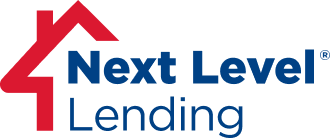
When you’re preparing to buy a home in Colorado, your credit score and overall financial health play a crucial role in determining your mortgage options and interest rates. A higher credit score and a strong financial profile can help you secure more favorable loan terms, potentially saving you thousands of dollars over the life of your mortgage. At Next Level Lending, one of the leading Colorado mortgage lenders, we understand the importance of credit scores and financial health in the home buying process. In this blog post, we’ll explore some strategies for improving your credit score and strengthening your financial position before applying for a mortgage.
Review Your Credit Report: The first step in improving your credit score is to review your credit report from the three major credit bureaus: Equifax, Experian, and TransUnion. You’re entitled to one free credit report from each bureau every year, which you can access through AnnualCreditReport.com. Carefully review your reports for any errors, such as incorrect account information or fraudulent activity. If you find any discrepancies, dispute them with the relevant credit bureau to have them removed from your report.
Pay Your Bills on Time: Payment history is the most significant factor in determining your credit score, accounting for approximately 35% of your score. To improve your credit score, make sure to pay all your bills on time, including credit cards, loans, and utility bills. Set up automatic payments or reminders to ensure you never miss a due date. If you have any past-due accounts, bring them current as soon as possible and continue to make on-time payments going forward.
Reduce Your Credit Utilization: Credit utilization, or the amount of credit you’re using compared to your credit limits, is another important factor in your credit score. Aim to keep your credit utilization below 30% on each individual credit card and across all your cards combined. For example, if you have a credit card with a $10,000 limit, try to keep your balance below $3,000. If you have high balances, work on paying them down and consider asking for credit limit increases to help lower your utilization ratio.
Avoid Applying for New Credit: Each time you apply for new credit, whether it’s a credit card or a loan, the lender will perform a hard inquiry on your credit report. Hard inquiries can temporarily lower your credit score by a few points. When preparing to apply for a mortgage, avoid applying for new credit accounts unless absolutely necessary. This will help keep your credit score stable and demonstrate to lenders that you’re not taking on new debt obligations.
Keep Old Credit Accounts Open: The length of your credit history is another factor that contributes to your credit score. Avoid closing old credit accounts, even if you’re not actively using them. Keeping these accounts open helps maintain a longer average credit history, which can positively impact your score. However, if an old account has an annual fee and you’re not using it, it may be worth closing to save money.
Consider a Rapid Rescore: If you’ve made significant improvements to your credit profile, such as paying down high balances or disputing errors on your credit report, you may want to consider a rapid rescore. Rapid rescoring is a service offered by some mortgage lenders, including Next Level Lending, that can update your credit score within a few days to reflect these positive changes. This can be particularly helpful if you’re on the cusp of qualifying for a better mortgage rate and need to see the impact of your efforts quickly.
Save for a Down Payment and Closing Costs: In addition to improving your credit score, it’s essential to focus on saving for a down payment and closing costs. A larger down payment can help you qualify for better mortgage rates and terms, as it demonstrates to lenders that you have a significant financial stake in the property. Aim to save at least 3-20% of the home’s purchase price for a down payment, depending on the type of home loan you’re seeking, such as conventional loans, FHA loans, or VA loans. Don’t forget to budget for closing costs, which typically range from 2-5% of the loan amount.
Maintain Stable Employment and Income: Lenders want to see that you have a stable source of income to repay your mortgage. Before applying for a mortgage, aim to maintain steady employment and avoid changing jobs if possible. If you’re self-employed or have variable income, be prepared to provide additional documentation to verify your income stability, such as tax returns and profit and loss statements.
At Next Level Lending, we’re committed to helping you navigate the mortgage process with confidence and ease. Our team of experienced mortgage professionals will work with you to assess your credit score and financial health, providing personalized guidance on how to improve your position before applying for a home loan. We offer a range of mortgage options, including conventional loans, FHA loans, and VA loans, and will help you find the best solution for your unique needs.
In addition to our mortgage expertise, Next Level Lending is dedicated to providing a seamless and efficient home buying experience. Improving your credit score and financial health before applying for a mortgage may take time and effort, but the benefits are well worth it. By following these strategies and partnering with a trusted mortgage lender like Next Level Lending, you’ll be well-prepared to secure the best possible mortgage terms and make your dream of owning a home in Colorado a reality. Contact us today to learn more about how we can help you achieve your homeownership goals.

